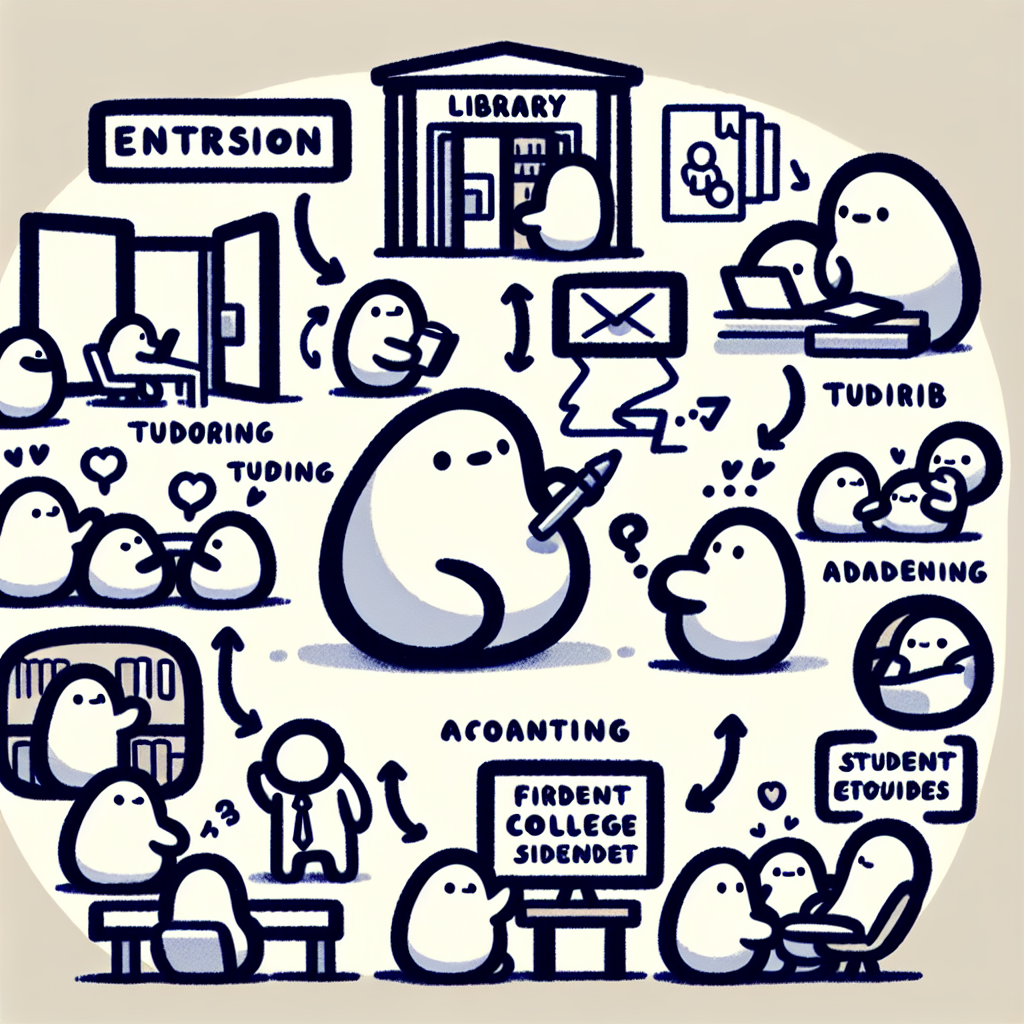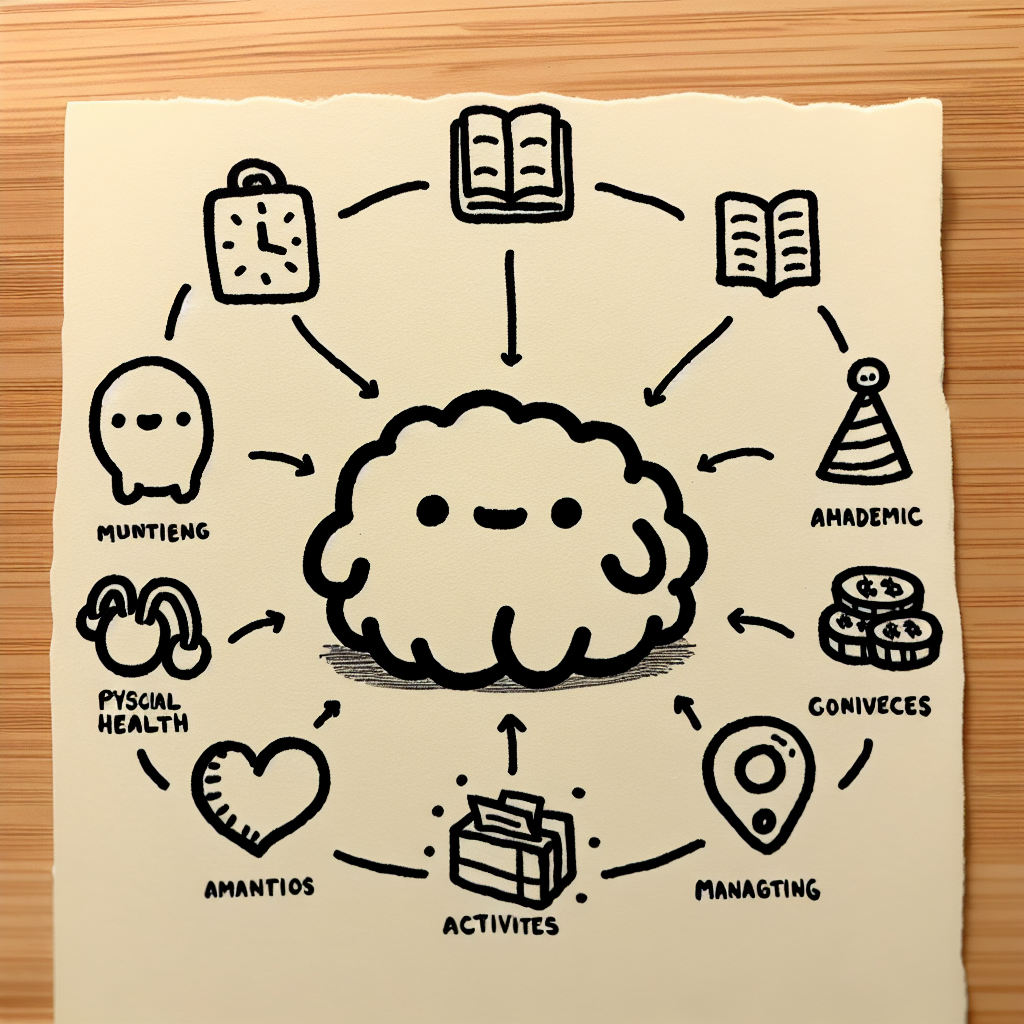Introduction: Navigating the First-Year Transition
The first year of college is a transformative experience that brings significant academic, social, and personal changes. For many students, it is their first time living away from home, managing their own schedules, and balancing new responsibilities. These transitions can be both exciting and overwhelming.
This first year college survival guide is designed to help students navigate these changes with confidence. It brings together expert advice and research-backed strategies to support students as they adjust to college life. From building effective study habits to establishing a social network and maintaining well-being, this guide provides practical tools to help first-year students thrive during this pivotal time.

🧠 Understanding Yourself as a Learner
Identifying Your Learning Style
Understanding how you learn best is a crucial step in the first year college survival guide. Students typically fall into one or more of the following learning categories: visual, auditory, reading/writing, and kinesthetic. Visual learners grasp information better through diagrams, charts, and written instructions. Auditory learners prefer lectures and discussions. Reading/writing learners excel with text-based input and output, while kinesthetic learners benefit from hands-on activities and movement.
To determine your learning style, self-assessment tools can be extremely helpful. The University of Washington offers resources that help students evaluate their learning preferences and suggest ways to tailor study approaches accordingly.
Adapting Study Habits Accordingly
Once you've identified your learning style, adapting your study techniques can enhance retention and performance. Visual learners might use color-coded notes and mind maps. Auditory learners can benefit from recording lectures and participating in study groups. Reading/writing learners should focus on detailed note-taking and rewriting key concepts. Kinesthetic learners may find success with active learning strategies like building models or teaching concepts to others.
Creating a personalized study environment also supports effective learning. For example, auditory learners may prefer quiet spaces or background music, while kinesthetic learners might incorporate movement breaks or study while walking.
Leveraging Strengths for Academic Success
Recognizing and utilizing your strengths can build confidence and help you tackle academic challenges. If you're a strong writer, focus on essay-based assignments and written communication. If you're good at organizing information visually, use charts and diagrams to study complex material. Leveraging these strengths allows for more efficient learning and can reduce stress during your first year.
By aligning your study habits with your natural preferences, you can navigate academic demands more effectively—a key component of any first year college survival guide.

📚 Academic Mastery: Study Skills & Strategies
Creating an Effective Study Plan
A strong academic foundation in your first year of college starts with a solid study plan. Begin by setting SMART goals—Specific, Measurable, Achievable, Relevant, and Time-bound. For example, instead of saying "I want to do well in biology," a SMART goal would be "I will study biology for 6 hours each week to maintain a B average or higher."
Using planning templates for both weekly and semester-long scheduling can help you visualize deadlines, exams, and assignments. Weekly planners keep your daily tasks in check, while semester templates offer a broader overview of key academic milestones.
Time Management Techniques
Time management is essential for academic success in your first year. A common guideline is the 3:1 rule: for every credit hour you're enrolled in, dedicate three hours per week to studying (Carroll College). For a 15-credit course load, that means about 45 hours of study time each week.
To prioritize tasks effectively, consider the Eisenhower Matrix, which sorts tasks by urgency and importance. Another helpful method is the Pomodoro Technique—work for 25 minutes, then take a 5-minute break. This cycle helps maintain focus and reduces burnout.
Avoiding Procrastination
Procrastination is a common hurdle in the first year of college. Identifying its root causes—such as fear of failure, perfectionism, or feeling overwhelmed—can help you address it directly.
Behavioral strategies like breaking tasks into smaller steps, setting specific deadlines, and using accountability tools like study groups or habit-tracking apps can keep you on track. Regular reflection on what's working—and what isn't—can also help you adjust your approach over time.
Mastering these skills early will not only help you succeed academically but also form the core of your first year college survival guide.

Making the Most of Campus Resources
Academic Support Services
One of the most important aspects of the first year college survival guide is knowing how to access and use academic support services effectively. Most campuses offer a range of resources designed to help students succeed. Libraries are more than just a place to check out books—they often provide access to research databases, quiet study areas, and workshops on information literacy. Writing centers can help students improve their essays and research papers by offering one-on-one feedback, while tutoring labs provide subject-specific help from trained peers or staff (University of Kentucky). Students should take note of available hours, make appointments early, and come prepared with specific questions or assignments to get the most out of these services.
Building Relationships with Professors and Advisors
Establishing strong relationships with professors and academic advisors can have a lasting impact on a student’s college experience. Attending office hours is a key part of this. Students should come with prepared questions about lectures, assignments, or course material, which shows initiative and helps deepen understanding. Academic advisors are also valuable resources for tracking academic progress and planning future coursework. Scheduling monthly check-ins with an advisor ensures that students stay on track and can adjust their plans as needed (Luther College).
Getting Involved in Campus Life
Participating in student organizations, clubs, and leadership roles is another essential component of the first year college survival guide. These groups provide opportunities to meet new people, explore interests, and develop leadership skills. Being involved in campus life has also been linked to higher retention rates and greater student satisfaction. Whether it’s joining a cultural club, running for student government, or volunteering for campus events, engagement helps students build a sense of belonging and purpose during their first year.

💬 Communication & Social Adjustment
Navigating Roommate and Peer Relationships
Strong communication skills are essential for surviving your first year of college. Living with a roommate, often a stranger, requires patience and clear expectations. Start by having an open conversation about habits, schedules, and cleanliness early on. This sets the tone for mutual respect and helps prevent misunderstandings.
When conflicts arise, address problems directly and calmly. Use "I" statements to express how specific behaviors affect you, rather than assigning blame. For example, "I feel distracted when music is playing late at night" is more constructive than "You're always loud."
Establishing boundaries is key. Whether it's shared space, noise levels, or visitors, agreeing on basic ground rules creates a more comfortable living environment. Regular check-ins can also strengthen your relationship and catch small issues before they escalate.
Developing Support Networks
Building a support system can make the transition to college life smoother. Start by getting involved in campus activities, clubs, or organizations that align with your interests. These are great places to meet peers who share your values and goals.
Mentors—whether professors, advisors, or upperclassmen—can offer guidance and encouragement. Don’t hesitate to reach out for academic or personal advice. Many colleges also offer peer mentoring programs specifically designed for first-year students.
Balancing academics and social life is crucial. While it's important to make connections, be mindful of your study time and energy levels. Create a schedule that prioritizes your responsibilities while still leaving room for meaningful social interaction. In the context of a first year college survival guide, learning to manage both spheres effectively lays the foundation for long-term success.

🧘 Mental and Physical Well-Being
Practicing Self-Care
Your first year of college can be demanding, which makes self-care essential. Prioritizing adequate sleep, balanced nutrition, and regular physical activity can help maintain both physical and mental health. According to the University of New Hampshire, these basic habits are foundational to a successful college experience. Lack of sleep, poor diet, and inactivity can quickly lead to fatigue and affect academic performance.
Stress and Time Management
Stress is part of the college experience, but managing it effectively is possible. Mindfulness techniques like deep breathing, guided meditation, and journaling can reduce anxiety and improve focus. Apps such as Headspace or Calm offer guided support for beginners. Learning to manage time with planners or digital calendars can also ease academic pressure. If stress becomes overwhelming, students should take advantage of on-campus counseling and wellness centers. These services often provide workshops and one-on-one support to help manage stress before it escalates.
Recognizing Burnout and Knowing When to Ask for Help
Burnout can sneak up on students, especially during high-pressure periods like midterms or finals. Signs include chronic fatigue, loss of motivation, irritability, and declining academic performance. Emotional burnout may also manifest as anxiety or depression. Recognizing these symptoms early is key. Most colleges have crisis services and mental health resources available. Reaching out to a resident advisor, peer support group, or mental health professional can make a significant difference. Knowing when and how to ask for help is a vital part of any first year college survival guide.

💼 Life Skills for Independence
Financial Literacy for First-Year Students
Developing financial literacy is a critical component of the first year college survival guide. First-year students should begin by mastering budgeting basics—tracking both income (such as part-time job earnings, financial aid disbursements, or family support) and expenses (like textbooks, food, transportation, and entertainment). Using budgeting apps or spreadsheets can help students stay on top of their finances and avoid overspending.
Understanding the structure and implications of student loans, scholarships, and work-study programs is essential. Students should know the differences between subsidized and unsubsidized loans, read the terms of scholarships carefully, and take full advantage of work-study opportunities, which can provide both income and valuable job experience.
Living Skills
Basic living skills are another pillar of independence in college. Many first-year students need to quickly learn how to do laundry properly, prepare simple meals, and manage shared living spaces respectfully and effectively. Clear communication with roommates about chores and shared responsibilities can prevent conflicts and create a more comfortable living environment.
Time-saving hacks can also make student life more manageable. Batch-cooking meals, prepping outfits for the week, and using timers or reminder apps for chores and study sessions are simple strategies that save time and reduce stress.
Digital Literacy and Online Etiquette
Managing your academic digital presence is increasingly important. This includes organizing files and emails, using cloud storage responsibly, and maintaining professionalism in communication with professors and peers.
Responsible use of technology and social media is also vital. Avoiding distractions during study time, being mindful of privacy settings, and thinking carefully before posting online are important habits. A well-maintained digital reputation can benefit students academically and professionally, making it a key part of the first year college survival guide.

📈 Planning for Long-Term Success
Setting Short- and Long-Term Academic Goals
A key part of any first year college survival guide is learning how to set realistic academic goals. These goals should balance immediate coursework with broader career interests. For example, if you're interested in a career in public health, consider selecting electives in biology or statistics early on. Most colleges offer degree audits and academic planning tools that help track your progress and make sure you're meeting graduation requirements. Using these resources regularly can help you stay on track and avoid surprises later.
Internships, Research, and Campus Jobs
Exploring early career opportunities on campus can strengthen your resume and clarify your interests. Internships, research assistantships, and on-campus jobs help you apply classroom knowledge in real-world settings while also building valuable connections. Many departments post openings through campus job boards or faculty emails. Starting your resume in your first year ensures you’re ready to apply when opportunities arise.
Preparing for Sophomore Year and Beyond
The end of your first year is a good time to reflect on what worked and what didn’t. Were the courses aligned with your strengths? Did you manage your time effectively? Use this reflection to adjust your goals and strategies for the coming years. Sophomore year often brings more challenging coursework and opportunities for specialization, so entering it with a clear plan can ease the transition. Consistent self-evaluation is essential for long-term academic and personal success.

✅ Final Checklist: First-Year Survival Essentials
To make the most of your first year in college, keep this checklist in mind as part of your first year college survival guide:
- Know your learning style and study methods: Identify whether you're a visual, auditory, reading/writing, or kinesthetic learner. Tailor your study habits to match your strengths to improve comprehension and retention.
- Use campus academic resources weekly: Take advantage of tutoring centers, writing labs, and office hours. Regular engagement with these resources can significantly boost academic performance.
- Meet with your advisor at least once a month: Academic advisors help track your progress, clarify graduation requirements, and connect you with opportunities. Monthly check-ins ensure you're on the right path.
- Stick to a personalized time management system: Whether it's a digital calendar, planner, or task app, find a system that works for you and use it consistently to manage classes, assignments, and activities.
- Maintain physical and mental well-being: Prioritize sleep, nutrition, and regular exercise. Don’t hesitate to use campus counseling services if you're feeling overwhelmed.
- Engage in at least one campus activity: Join a club, organization, or intramural sport. It’s a great way to meet people, reduce stress, and build a sense of community.
- Budget monthly and monitor financial aid: Track your expenses and check your financial aid status regularly. Understanding your budget helps prevent unwanted financial surprises.
- Reflect regularly and adapt as needed: Take time each month to evaluate what’s working and what’s not. Adjust your strategies accordingly to stay on top of both academic and personal goals.
This checklist helps ensure you're covering the essentials for a successful and manageable transition into college life.

📚 References
For more in-depth strategies and practical advice on thriving during your first year, the following resources provide valuable insights aligned with this first year college survival guide:
- University of Washington's DO-IT Program: College Survival Skills – Offers guidance on academic success, self-advocacy, and managing transitions.
- Carroll College: College Survival Skills – Covers mental health, time management, and navigating campus life.
- University of Kentucky College of Education: College Survival Tips – Breaks down tips for adjusting academically and socially during the first year.
- Luther College: Ways to Be Successful During Your First Year of College – Highlights actionable steps to build a successful foundation.
- University of New Hampshire: Freshman Year Survival Guide – Offers advice on coursework, involvement, and support systems for new students.







.png)






